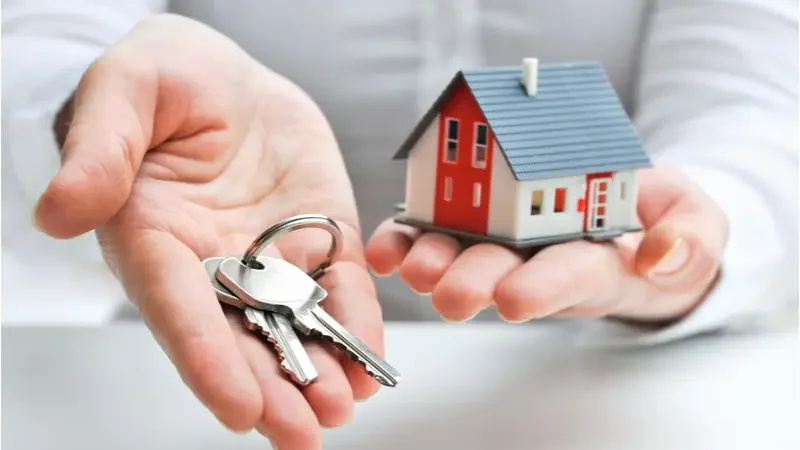The world of cryptocurrency has created many success stories, with investors turning digital assets into real-world wealth. From Bitcoin and Ethereum to newer tokens like Pepe Coin, savvy traders have found ways to build substantial portfolios. One of the most rewarding ways to use these gains is by investing in real estate. This guide will walk you through how to turn your crypto profits into your dream home.
Contents
Understanding the Basics: From Crypto to Cash
Before you can start house hunting, you’ll need to convert your cryptocurrency into traditional currency. Here’s how to do it safely:
First, decide which cryptocurrencies you want to sell. Many investors keep some crypto investments while cashing out others. Look at which coins have given you the best returns and consider market timing. It’s often wise to sell when prices are high rather than waiting until you need the money for your down payment.
Remember that selling crypto means paying taxes. In most countries, you’ll need to pay capital gains tax on your profits. Keep detailed records of when you bought and sold your crypto, as you’ll need this information for tax purposes. It’s wise to set aside about 30% of your gains for taxes, though the exact amount depends on your location and tax bracket.
Planning Your Real Estate Purchase
Once you’ve converted your crypto to cash, it’s time to plan your real estate purchase. Here are the key steps:
Set a Realistic Budget
Your crypto gains might be impressive, but remember that buying a house involves more than just the purchase price. You’ll need money for:
- Down payment (usually 20% of the house price)
- Closing costs (about 2-5% of the loan amount)
- Property taxes and insurance
- Maintenance and repairs
- Furniture and decorations
- Emergency savings
Get Pre-Approved for a Mortgage
Even with significant crypto gains, you might still want a mortgage to keep some money invested elsewhere. Lenders will want to see where your down payment money came from. Be prepared to:
- Show documentation of your crypto sales
- Provide bank statements showing the money in your account
- Explain any large deposits
- Present tax returns and proof of income
Most lenders want to see that your down payment money has been in your account for at least 60 days. Plan and move your money early.
Finding the Right Property
With your finances in order, it’s time to search for your dream home. Consider these factors:
Location Matters
Think about:
- Distance to work
- School district quality
- Neighborhood safety
- Future development plans
- Property value trends
Property Features
Make a list of must-haves and nice-to-haves:
- Number of bedrooms and bathrooms
- Yard size
- Garage space
- Home office potential
- Kitchen size and features
- Storage space
Future Value
Consider how the property might increase in value over time:
- Is the area growing?
- Are there planned improvements nearby?
- How well do homes in this area hold their value?
- What improvements could you make to increase the property’s worth?
Making the Purchase
When you find the right property, move quickly but carefully. Here’s what to do:
The Offer Process
- Work with a real estate agent to make a competitive offer
- Include any conditions (like home inspection)
- Be prepared for negotiations
- Have your down payment ready in a traditional bank account
Closing the Deal
- Get a thorough home inspection
- Review all paperwork carefully
- Work with a real estate lawyer
- Arrange for home insurance
- Plan your move
Innovative Money Management After Purchase
After buying your home, it’s essential to manage your remaining assets wisely:
Keep Some Investments
Only put some of your money into the house. Consider keeping some investments in:
- Remaining cryptocurrency
- Stocks and bonds
- Emergency savings
- Home improvement fund
Plan for the Future
Think about:
- Regular maintenance costs
- Property tax payments
- Insurance premiums
- Possible renovations
- Building your wealth further
Tips for Success
Here are some final tips to help you succeed in your real estate purchase:
- Take your time with the process. Take your time just because you have the money ready.
- Work with professionals who understand large transactions. Find a real estate agent and lawyer who has handled similar situations.
- Keep detailed records of everything. This includes crypto sales, bank transfers, and all real estate documents.
- Remember taxes. Work with a tax professional who understands both cryptocurrency and real estate.
- Think long-term. Your home is both a place to live and an investment.
Conclusion
Converting crypto gains into real estate is a smart way to turn digital success into tangible assets. By following this guide and working with professional advisors, you can navigate the process successfully. Remember that a house is a long-term investment that can provide both a comfortable home and potential future gains. Take your time, do your research, and make informed decisions to turn your crypto profits into the home of your dreams.

Sarah Wilson, an accomplished writer and seasoned blogger, weaves compelling narratives that transport readers to new and uncharted worlds. With a talent for vivid storytelling and thoughtful insight, her work leaves a lasting mark, enchanting both the imagination and intellect.
